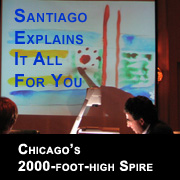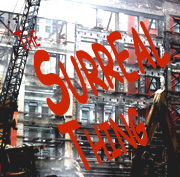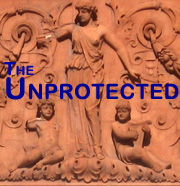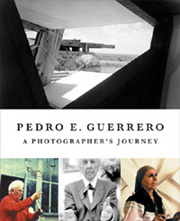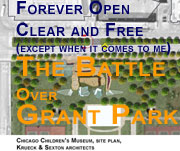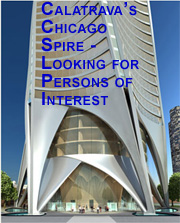Repeat- Writings on Architecture: Chicago: World's Greenest City (original) (raw)
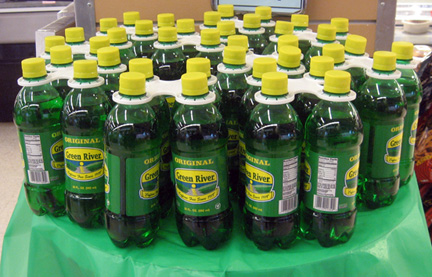
So is St. Patrick's Day really an obsession in Chicago, you ask. Is the Pope Irish? Well, what about the mayor, then? Once again, here's our annual anthropological exploration of this unique event.
In the 1850's, one out of every five Chicago residents was Irish. As a defense against early anti-Irish prejudice, the Irish became a major force in the city's politics, an influence that remains today. It's not unknown for someone who wants to be elected judge to change their name to one that has more of an Irish lilt.
Neighborhood saloons, once ubiquitous, have been rapidly disppearing, to be replaced by more upscale descendants. Butch McGuire's on Division has long been a singles magnet combining mating rituals with cheerful (usually) inebriation. The Kerryman is a more recent updating of the ideal of an Irish drinking establishment, taken upscale.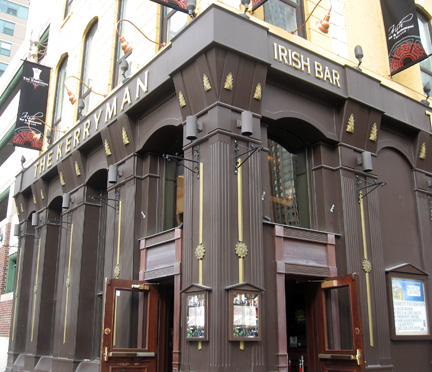
Until the recent rush to schedule Presidential primaries as early as possible, Chicago primary elections were held in March, and no politician - Irish or not - would be caught dead not putting in an appearance at the St. Patrick's Day parade. If you get to march in the front line with The Mayor, you're golden-green. Irishness, politics and St Patrick's are an indivisible local amalgam, here put on blazing display at still another Gaelic hangout, Fado on Clark Steet.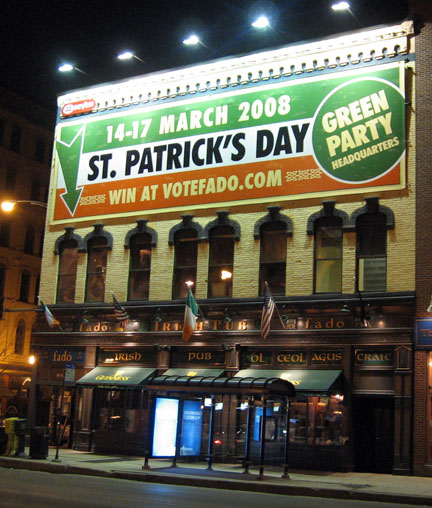
By all accounts, we don't drink as much as we used to, but for St. Patrick's Day in Chicago, even the bus shelters do their part.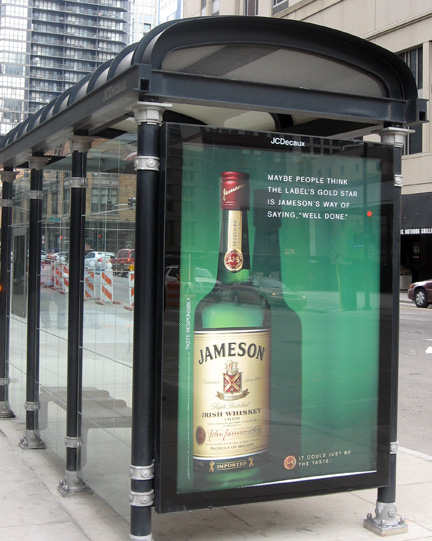
Not so coincidentally, Jameson's is also a major sponsor, banners flying, of this year's St. Pat's events.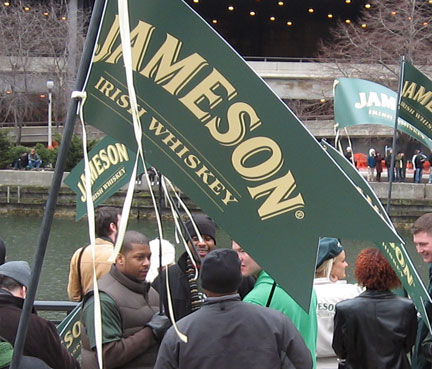
In the 1800's, the buildings and of downtown Chicago were jacked up and the streets raised a story above the Chicago river, above the muck and sewage that mired the old streets. Here, spectators line the river on no fewer than three different levels. 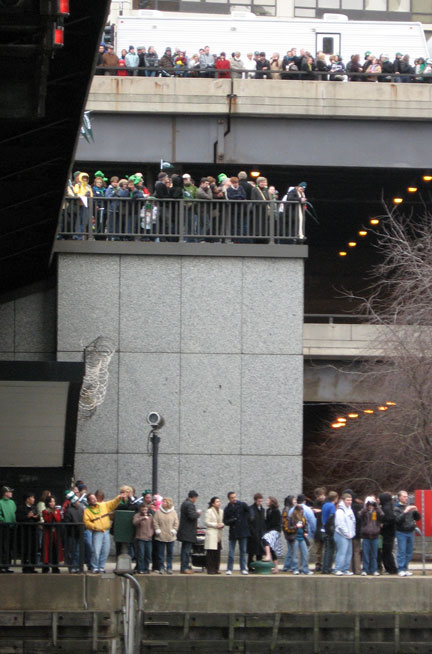
The tradition of dyeing the Chicago green was begun in 1962 by a pipefitter's union official. Even today, Chicago remains a union town, and plumbers from Local 130 now do the honors.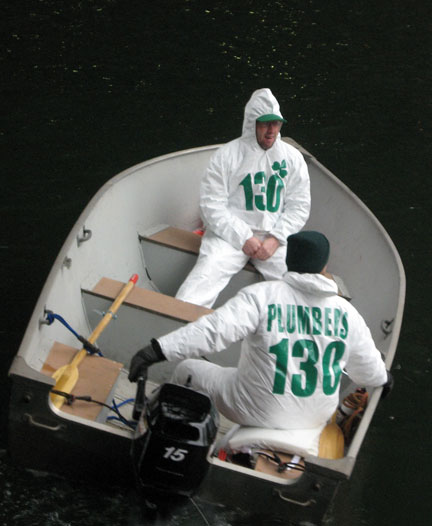
The dye is orange, but add water, and voila: instant essence of Emerald.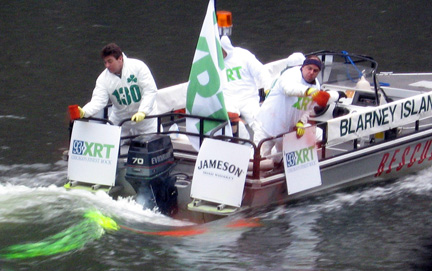
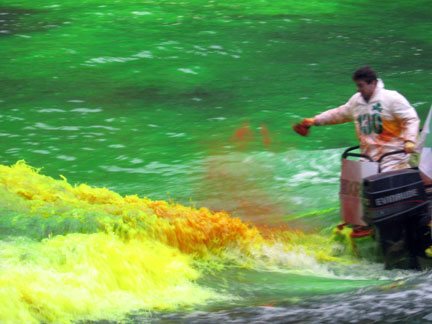
Speedboats function as mixmasters, churning up the river water and spreading out the dye.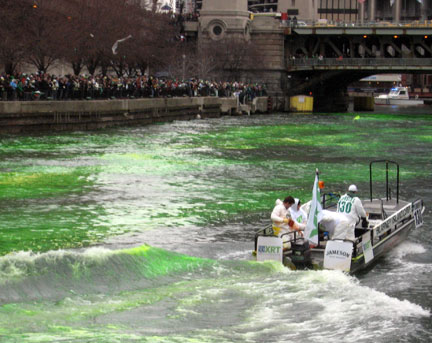
And then . . .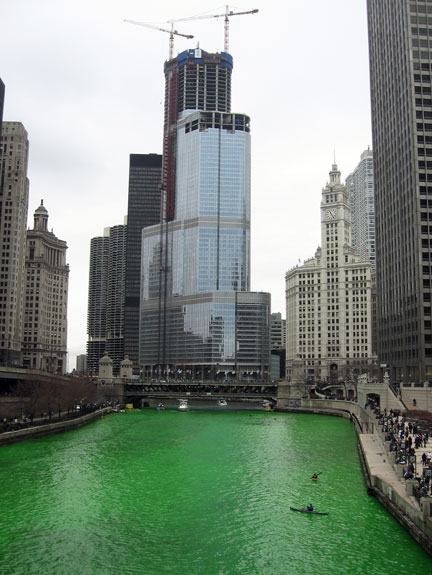
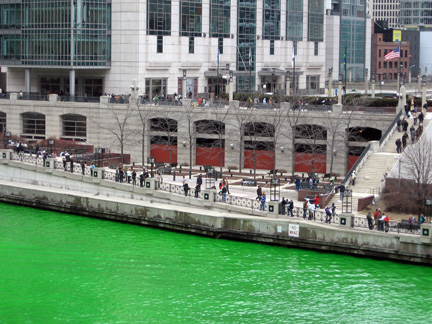
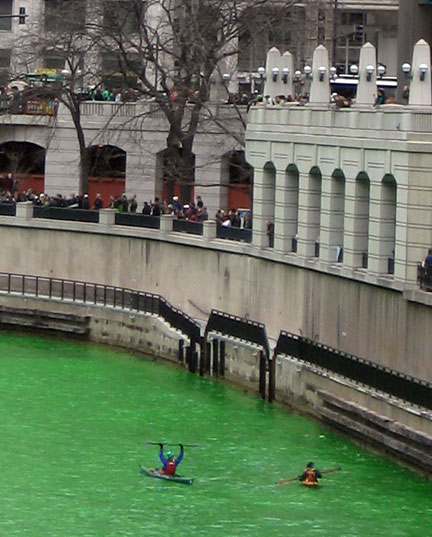
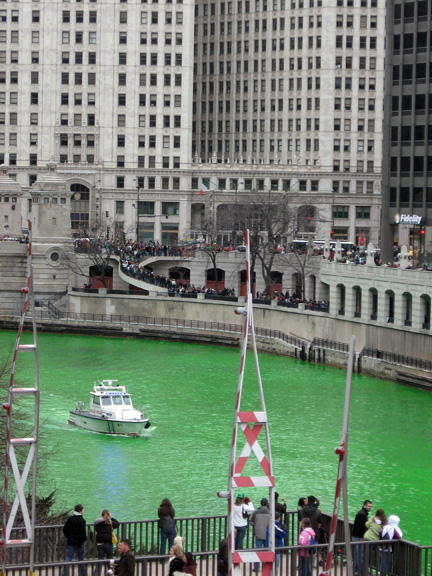
Tragically, remnants of old prejudices remain. The Irish are still sometimes herded together into small pens, in often crushing, inhumane proximity.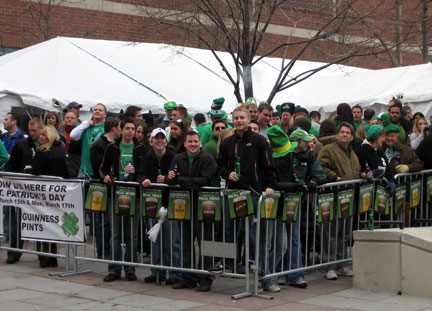
Even a day later, the day-glo green has not yet completely faded.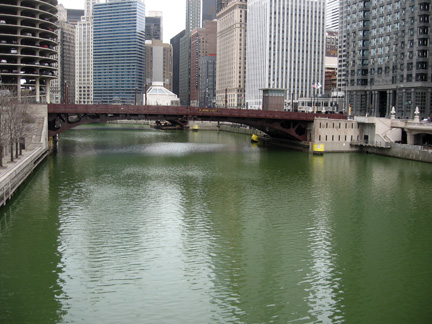
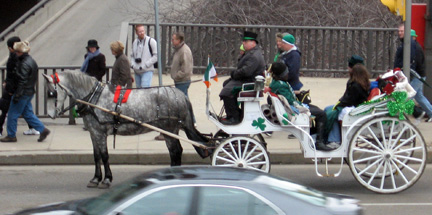
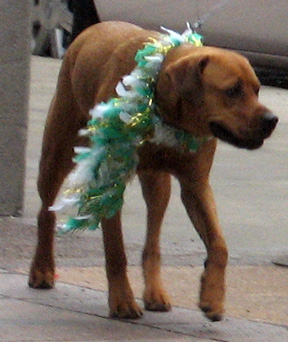
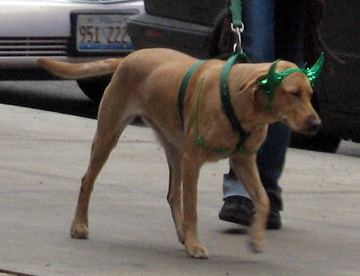
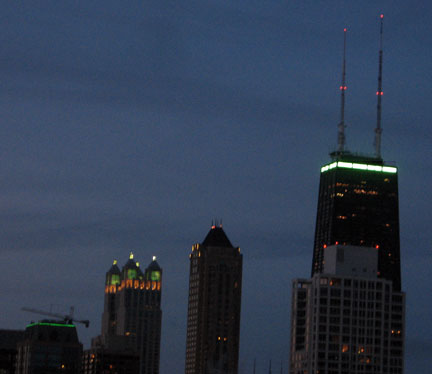
more St. Patrick's photos from years past
Join a discussion on this story.
© 2008 photos and text Lynn Becker All rights reserved.
